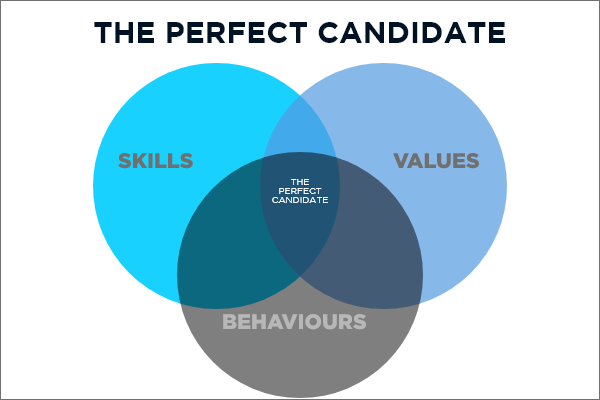4 key elements to help your startup find great employees
We often discuss what top talent seeks from hiring businesses, but the flip side of that coin is equally important. Do you know what to look for in a great candidate? If you don’t, you’ll be hiring the wrong people, leading to a disconnect between your team and your vision. Of course, a disconnect leads to turnover, which will cost you even more in hiring — dangerous for any business, but especially startups where cash can be tight. Stop wasting your money on poor hiring practices. Here’s how.
Why Companies Hire Wrong (and How to Make It Stop)
In order to hire well, companies need to understand why they’re struggling to hire in the first place. For startups especially, it could be a simple matter of money. This is fair. If you feel your business doesn’t have the financial means to hire the right candidate, you may end up settling for someone who isn’t perfect for the job but fits your budget. The challenge with settling is you might end up hiring talent who:
- Can’t commit exclusively to your venture.
- Lack the commitment to help build your business from the ground up.
- Have their own projects and startups in mind.
All three of those factors indicate one thing: You’ve hired poorly and have extended a job offer to someone who won’t be around for long. So, how do you stop hiring the wrong candidates? It comes down to a few things:
- Looking in the right place.
- Knowing what you want from top talent.
- Appropriately structuring your interview process.
- Crafting an honest and enticing EVP (employer value proposition).
How Do I Find the Right Candidates?
If you know where to find the talent you’re after, you’ll spend less time and money seeking them out. Just like you do market research before a product launch, you should determine your target audience for job openings.
What roles are you trying to fill?
What age demographic are you aiming to hire?
Where would they see your job postings, and what should the post include?
Too many businesses still rely on the same old job boards and advertisements to attract applicants. Write better ads. Leverage tools like social media to find the best candidates. Think outside the box to hire for diversity and build a stronger team. If you’ve done hiring research and keep appropriate tabs and KPIs during the hiring process, you can also revisit past applicants for future roles, especially if they had a great candidate experience.
What Is the #1 Thing to Look for?
If they only receive three seconds of attention, why are businesses putting such emphasis on judging candidates by resume? Far beyond someone’s work experience listed on a piece of paper, the most essential thing for your hiring manager to look for is whether or not the potential hire will fit in with your company culture. As our Chief Talent Officer, John Fleischauer articulated in his TedX Talk,
“A company’s culture is the end result of all of the relationships within the organization and their shared output towards some common belief, common vision, or common goal… “
To maintain the company culture and continue building on your team’s work to achieve your startup’s goals, you need to hire talent who can contribute to and gain from what the business offers and wants to achieve. So, maybe it’s time to move beyond just the classic resume and interview process…
How to Interview
There are numerous ways to assess strengths across hard and soft skills, especially when you appropriately structure your interviewing process. In fact, one of the most crucial things when interviewing is to create a structure. You want to consistently assess all candidates to help understand whether they’ll be a good hire or not. Consistency can also help remove any bias from your process. To determine whether someone is a good hire, you should:
- Assess some of their past skills to see where they measure up
- Ask behavioural questions to gauge some of their soft skills
- Compare values to see whether or not they’re a good fit for the overall company culture.
PRO TIP: If you think you have a good candidate on the line, don’t take too long. Nearly 40% of candidates will lose interest and pursue other jobs and positions if the interviewing process takes too long.
Scorecarding
Not only does scorecarding add the necessary structure to your interviewing process, but it also helps startups understand the skills and traits they should be looking for in their ideal candidate. Asking the right questions will lead to making the right decisions. Every businesses scorecard will look different, but there are a few points that should be the same across the board: 
- Keep it simple. You want to be able to make quick scores during the interview without interrupting.
- Determine a scoring system (eg. 1/10) to assess compatibility with both company culture and the role being filled.
- Leave room for other notes, concerns, and recommendations about the candidate.
There are generally three areas you apply the scoring system to as you move through the interview: specific skills for the position, desirable personality traits for the position, and qualifications such as education or experience. Ideally, you’ll build your scorecard with the hiring manager to ensure everyone is on the same page. For example, we at Pivot + Edge sit down with a company’s hiring manager to outline their hiring needs and incorporate them into the scorecard. If you need a hand with scorecarding or any other aspects of finding the best candidates for your business, we’re happy to help.
Employer Value Propositions
The last step to finding the right candidate is creating and presenting a solid EVP for potential hires.
EVPs provide transparency to those applying and help them determine whether or not they fit within the company and if they should bother applying in the first place. Your EVP should be clear about things like your work environment model (hybrid, remote, or in-office), the company’s values and drivers that build internal company culture, and the best parts and perks of working for your company. Thus, a robust EVP weeds out the wrong candidates before their resume even hits your desk.
By beginning your process with a strong employer value proposition, putting job postings through the right channels to reach the right people, knowing what to look for, and assessing your applicants with a consistent scorecard, you’ll be hiring the best candidates and retaining the right people the first time.
Not sure if you want to venture out alone? That’s why we’re here to help! Contact us today.







